

Tuscan Foundry Products Ltd is a UK-based manufacturer and distributor of building products for traditional, period and listed properties. We offer an extensive range of cast iron rainwater gutters and pipes from our foundry works in Mid Wales.
Support for your project from someone who actually understands the use of traditional building materials.
With more than half a million listed buildings and the recent trend in converting barns into domestic or office dwellings, the heritage property market is very buoyant in the UK. In fact, any building standing empty whether it’s an old mill, post office or even a disused train station has potential to a property developer and are snapped up for renovation regardless of its shape or practicalities.
Tuscan Foundry Products grown to become one of the UK’s leading manufacturers and suppliers of traditional cast iron rainwater drainage systems, traditional cast iron radiators and bespoke metal products. The company has a history of working with metal dating right back to 1893.
Being at the forefront of their industry, Tuscan Foundry Products continually updates the specification of its products to meet architectural needs. Although the products are largely specified for traditional buildings they also complement and add value to modern architecture.
Tuscan Foundry Products replicates traditional and unique guttering profiles for the replacement of failed sections of original rainwater systems. In total, Tuscan Foundry Products has 19 different profiles, 3 different pipe profiles and over 50 ornamental rainwater hopper heads. Original cast iron decorative features can also be restored back to their former glory by being shot blasted and repainted by the foundry.
Tuscan’s range of cast iron radiators are energy efficient as sectional columns meet with individual heat requirements. Cast iron radiators are supplied in units of up to ten sections (the length of the unit can be extended when installed). Each radiator comes complete with plugs, bushes and vents. An extensive range of solid brass, nickel or chrome radiator valves are available to suit both contemporary and traditional interiors.
In 1893 at the age of 13 Edward Richards left school to join his father in his small blacksmiths business in Bristol.
Working for other Bristol Companies as well as the general public, manufacturing with steel and iron for bespoke orders of wrought iron gates, and other ornamental items for the building trade. Their activities prospered and they moved to larger premises in the central Temple district of Bristol.
By the time of the 1914 -1918 War the partnership was well placed to become contractors to HM Government supplying horse shoes, nails and a range of other items including hinges and brackets for the gun carriages and other horse drawn vehicular items required at that time.
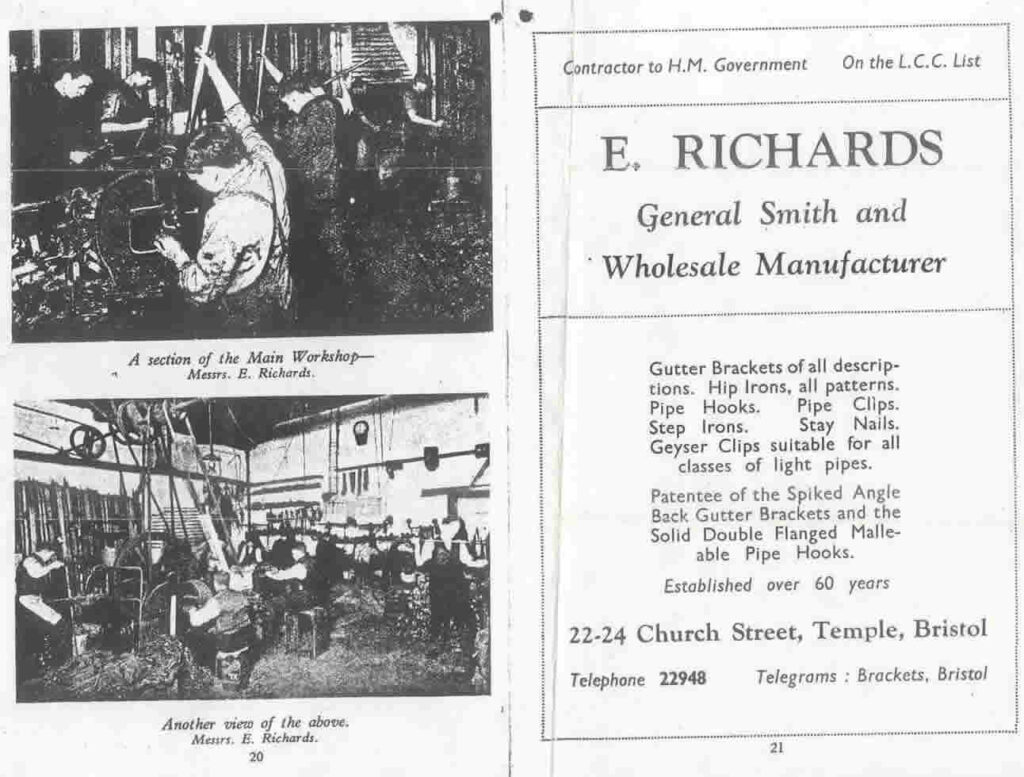
In 1945 the company expanded rapidly into structural steelwork as well as in the original business for iron and steelwork in the building industry, having a registered design for flue pipes with twin legs, a very new concept.
By the eighties however the building industry peaked and the company decided to move to smaller more modern premises in Yatton when they concentrated on the business in which they had specialised in for over a hundred years; Gutter and Pipe brackets for Cast Iron rainwater systems.
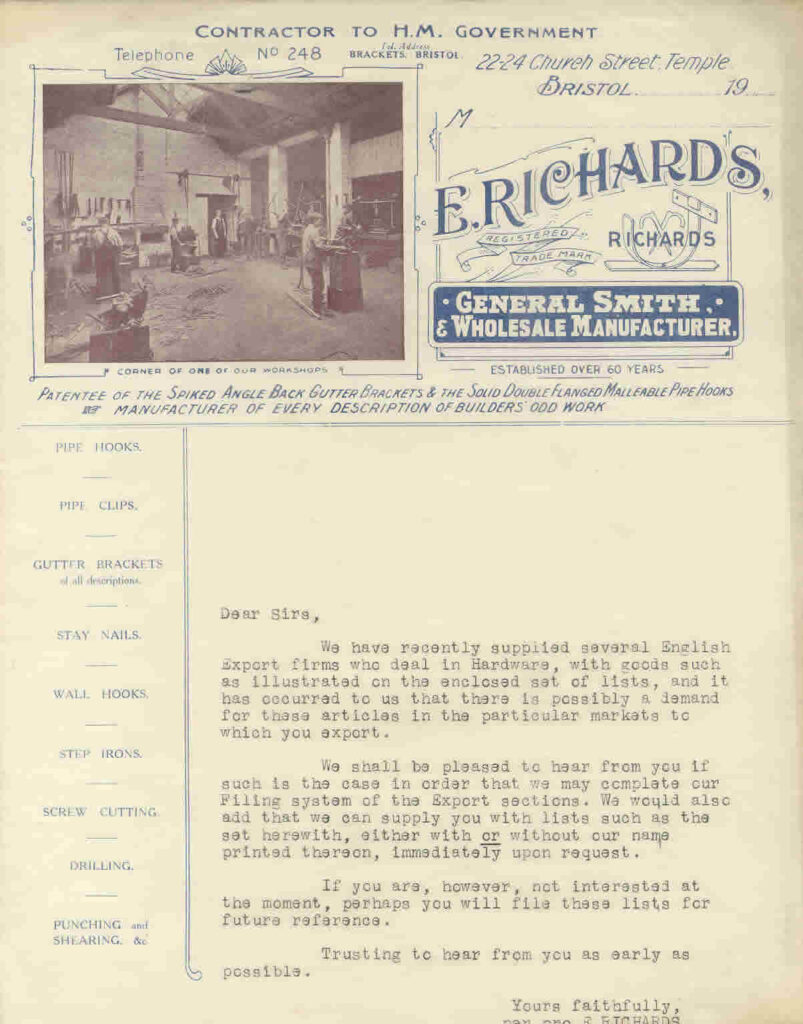
During the 21 years of peace between the wars the business expanded becoming a specialist manufacturer of builders ironwork. Taking out many patens for the gutter brackets and pipe clips they made.
When hostilities commenced again in 1939 the company reverted to their role as suppliers to the War Department, providing components for tanks, bailey bridges, ladders etc.
Limited supplies of ironmongery had to be kept for the shadow factories and airfields that were created on open hilltops in an endeavour to act as decoy cities to confuse the enemy bombing raids.
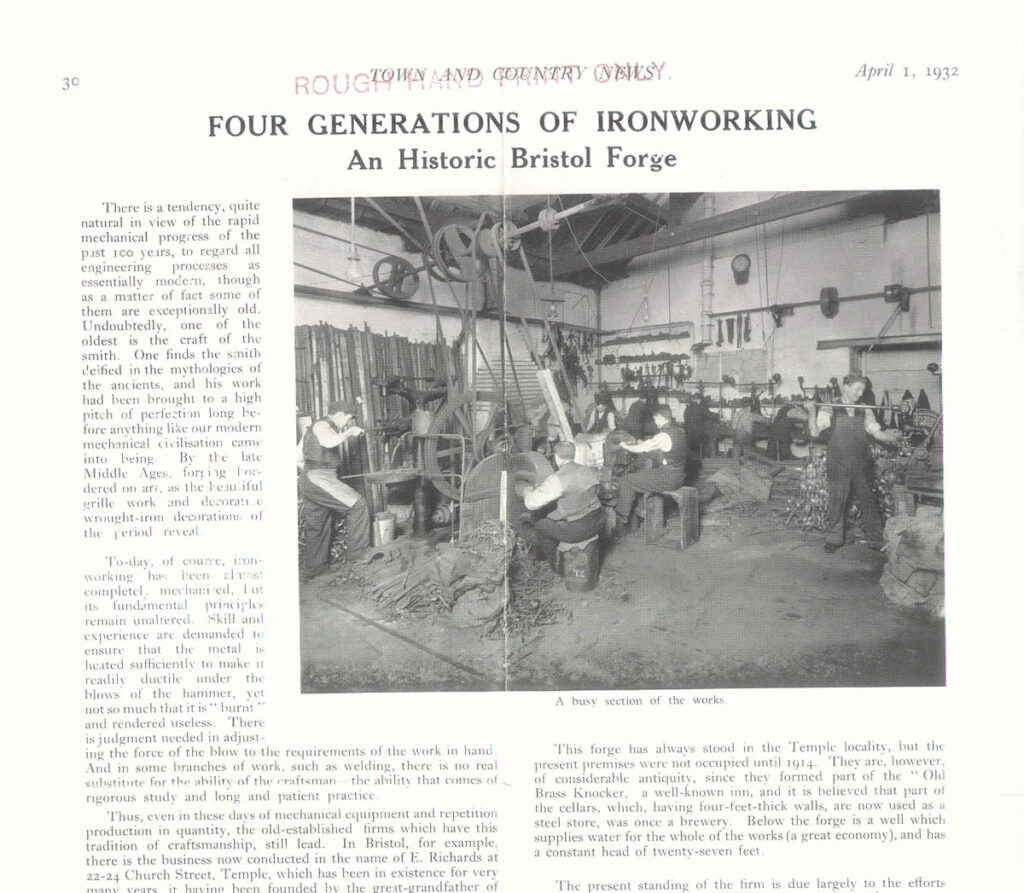
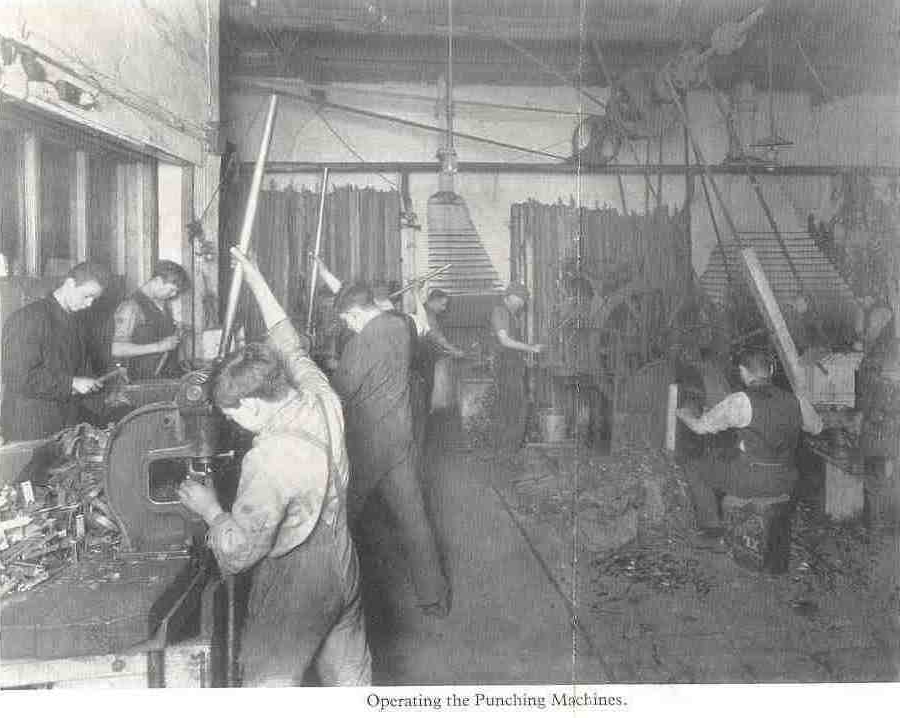
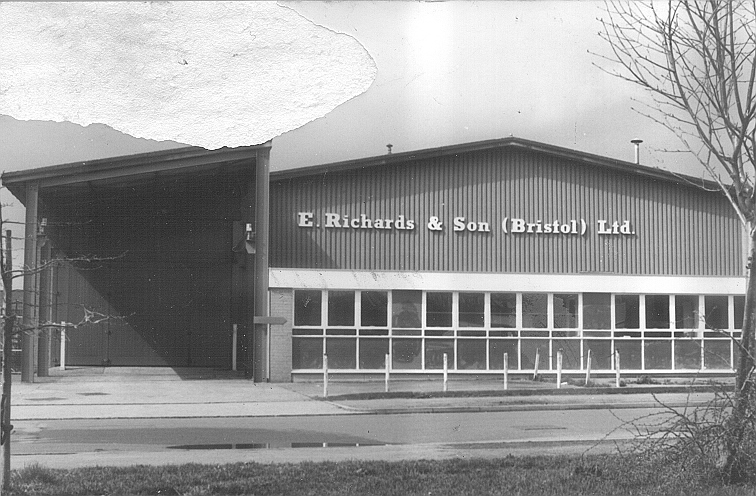
Mrs June Tilley the great grand daughter of the founder of the company and Managing Director since 1969 decided along with her husband Norton, after a lifetime in the bracket industry, to retire.
Richards Brackets reverted to it’s original trading name of E Richards and passed into the hands of another family run business specialising in the manufacture and supply all cast iron and aluminium required for the conservation of historic buildings.
Continuing the company’s tradition of supplying builders merchants with mild steel brackets for cast iron rainwater systems, using the original formers and tools to ensure authenticity of the product, these items are still manufactured in England using the best quality materials.